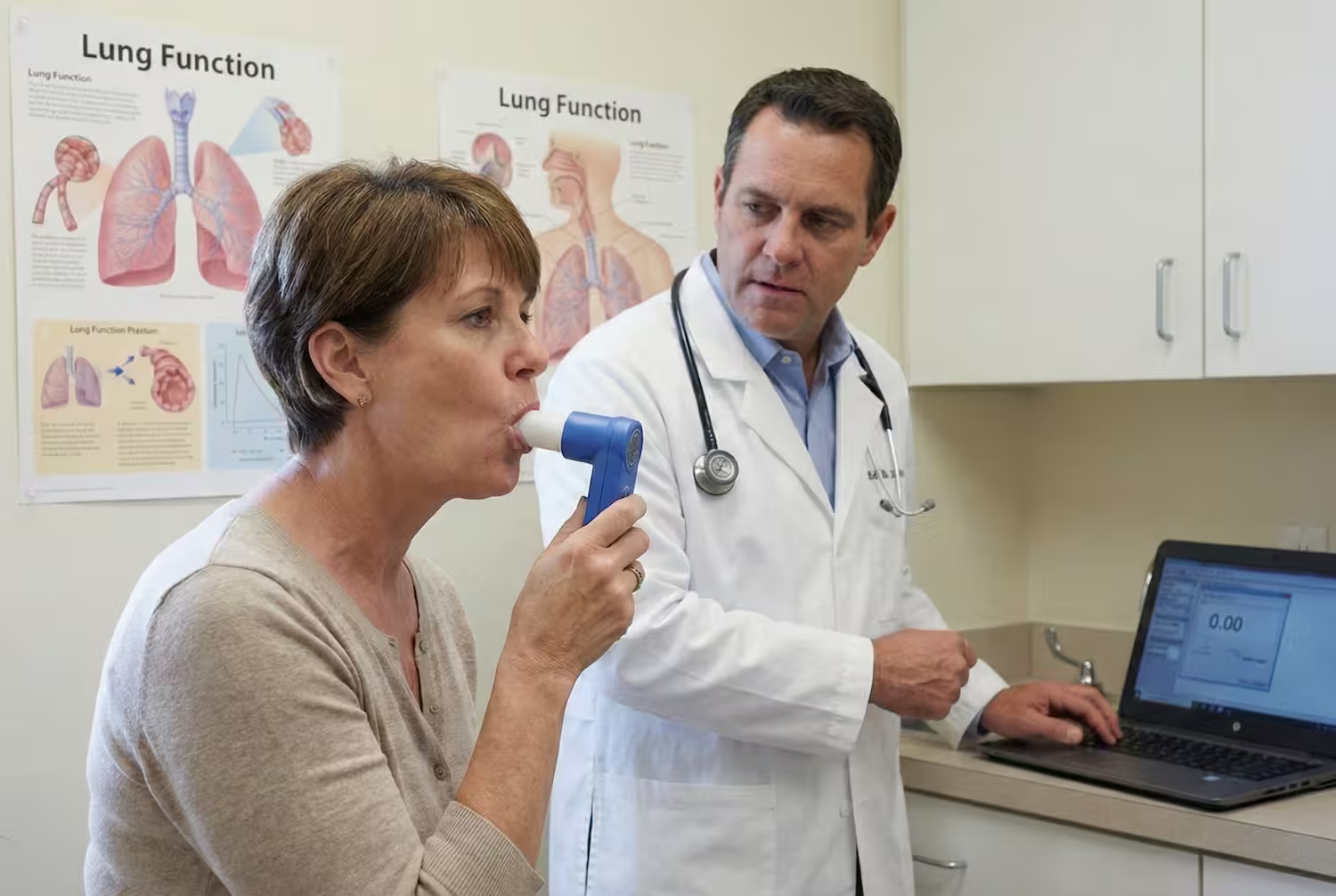
In the United States, an individual experiences a heart attack every 40 seconds, according to statistics.
Heart attacks constitute a medical emergency, and it is important to understand the different ways in which heart attacks present themselves. Below is a closer look at what happens during a heart attack, how long a heart attack can last, and how it can be treated.
What Happens During a Heart Attack?
The heart is a four chamber muscular organ that contracts to pump blood. The consistent contraction of the heart keeps blood circulating throughout your body, ensuring that all of your tissues receive the necessary oxygen and nutrients. If blood flow to a tissue stops, it can result in tissue damage and even tissue death.
The heart receives oxygenated rich blood from the coronary arteries on its outermost surface. If the coronary artery becomes blocked, it can result in a heart attack. Because the heart is always working to beat, it needs a steady supply of blood and nutrients. When there is a partial or complete blockage in one of the coronary arteries, the muscular tissue is no longer able to receive an adequate supply of oxygen and allow for normal muscle contractions.
If without oxygen for too long, the heart tissue becomes damaged, ceases to beat and ultimately will die unless the blockage is cleared in time and blood flow is restored.
A heart attack tends to be an acute condition with rapid onset, but several factors can increase the chances of a blockage in the coronary artery.
Conditions like hypertension (high blood pressure), heart disease, hypercholesterolemia (high cholesterol), and a family history of heart attack can contribute to an increased risk of a heart attack.
What Are the Symptoms of a Heart Attack?
When your heart is being starved of oxygen, you may notice several different symptoms. Below is a closer look at some of the most common.
Pain in the Chest, Arms, or Back
Pain in the chest area can be indicative of a cardiac event like a heart attack.
Chest pain is one of the most significant symptoms of a heart attack. While pain in the chest is common, you may also have pain that radiates from your chest to other parts of the body, known as referred pain. Sudden discomfort or pain in the shoulders, arms, back, or jaw, especially pain that radiates up the left arm, could indicate a heart attack.
Pressure or Squeezing Sensation in the Chest
Along with chest pain, general chest discomfort or pressure may also occur during a heart attack. Some people equate this sensation to having weights placed on their chest.
Heart Palpitations
A heart that is struggling to function from a lack of blood flow may also begin to exhibit abnormal heartbeats, known as arrhythmias. Many people who experience a heart attack describe their heart as pounding out of their chest.
During a heart attack, a section of the heart is not functioning as it should, and the other aspects of the heart will try and compensate, which can lead to abnormal heartbeats.
Shortness of Breath
The lungs and the heart are closely related, and a factor that impacts one organ tends to impact the other, too. This is evident in conditions like heart failure, which can cause fluid to build up in the lungs, known as pulmonary edema.
During a heart attack, you may experience shortness of breath. When the heart is not working efficiently, it may not be able to pump sufficient blood to the lungs — the result can be shortness of breath followed by lightheadedness, nausea, and even fainting.
How Long Can a Heart Attack Last?
No two heart attacks are exactly the same, and there can be vast variations in the symptoms, warning signs, impacts, and duration of a heart attack.
Some heart attacks can be transient if theres a partial occlusion of an artery. Your doctors will likely need to perform additional procedures such as a left heart catherization to determine the extent of the blockage and the best course of action for you.
Sometimes, blockages can be reversed during a left heart cath with a balloon angioplasty and stent deployment. While more significant blockages or multiple blockages, may require surgical intervention to bypass the blocked artery or arteries.
The question of how long a heart attack can last is highly dependent on the severity of the case. A heart attack itself may last anywhere from 15 to 20 minutes on average, with symptoms sometimes lingering beyond this timeframe. In cases of a chronic total occlusion (CTO), the blockage itself can last for months, even though the actual cardiac event only spans over a few minutes.
A CTO is typically caused by progressed arterial disease, which eventually prevents flow through the coronary artery. Other heart vessels, known as collaterals, help compensate and deliver oxygen to occluded regions, but this is only partially effective and typically results in a loss of heart muscle over time.
It is thought that permanent damage occurs in as little as 30 minutes when cells of the heart are starved of oxygen — this means that although a heart attack is generally brief, you can still sustain permanent damage to your heart.
If the heart is still getting some blood flow, the damage may be less severe. However, when the tissue of the heart is completely cut off from a supply of oxygen, you may be at a much higher risk of experiencing irreversible tissue death.
Does Heart Attack Treatment Impact Duration?
Another factor to consider regarding the length of a heart attack is how quickly you are able to get medical attention.
Some of the most common first-line treatments for a heart attack are nitroglycerine and aspirin. Nitroglycerine is typically prescribed to individuals with chest pain and works by causing immediate but temporary widening of the artery to increase blood flow to the heart tissue.
Aspirin is another common medication used at the onset of chest pain, and works by reducing the congregation of platelets which may reduce the likelihood of further blockage.
These treatments, often given by first responders, can help to buy time until you arrive at a hospital for further treatment.
What Should You Do If You Suspect a Heart Attack?
You should seek immediate medical attention if a heart attack is suspected. When heart cells don’t have adequate access to oxygen, time is of the essence.
If you experience signs of a heart attack, especially if you are at an increased risk of a heart attack, you should immediately call 911. An operator will ask about your chief complaint and may even instruct you to take aspirin before the arrival of the ambulance.
Once an EMT or paramedic arrives, they will assess your condition, help with administering nitroglycerin as needed, and transport you to the nearest hospital for definitive treatment.
How Is a Heart Attack Treated?
While a heart attack is an acute condition, the treatment and recovery of a heart attack extend well after the event itself. Below is a closer look at the immediate and long-term treatment following a heart attack.
Immediate Treatment
The main priority when it comes to a heart attack is restoring blood flow to the cells of the heart. There are a number of treatment methods that can help accomplish this, and some of the most common include angioplasty, the administration of clot-busting drugs (thrombolytics), coronary bypass, or placement of a stent.
Post-Heart Attack Treatment
Reestablishing blood flow to the heart is only the beginning of your journey towards recovery.
Recovery from a heart attack is a long road, as a heart attack can leave you with a permanently weakened heart which can contribute to acute heart failure. Additionally, the risk of future heart attacks can increase substantially.
Many healthcare professionals will enroll patients in cardiac rehabilitation programs after a heart attack. Cardiac rehabilitation is a program designed to help improve cardiovascular health through monitored exercise, health education, and assistance with making positive lifestyle choices, such as diet changes to maintain proper nutrition. These programs can have a positive impact on both recovery and prevention of future cardiac problems.
Carda Health is a cardiac rehab provider that offers unprecedented flexibility to those looking to improve their standard of cardiovascular health.
When you want to make positive changes to your cardiac health, Carda Health is here to help you achieve those goals all from the comfort of your own home with a personalized plan for your specific needs.

The Bottom Line
At the end of the day, a heart attack can differ from person to person and from case to case. No two heart attacks are exactly alike, and if you suspect a heart attack, you should seek immediate emergency medical assistance.
A blockage in the coronary artery can cause irreversible heart damage and, if not treated promptly, can lead to cardiac arrest and potential death.
Sources:
The Role of Coronary Collaterals in Chronic Total Occlusions | NCBI







